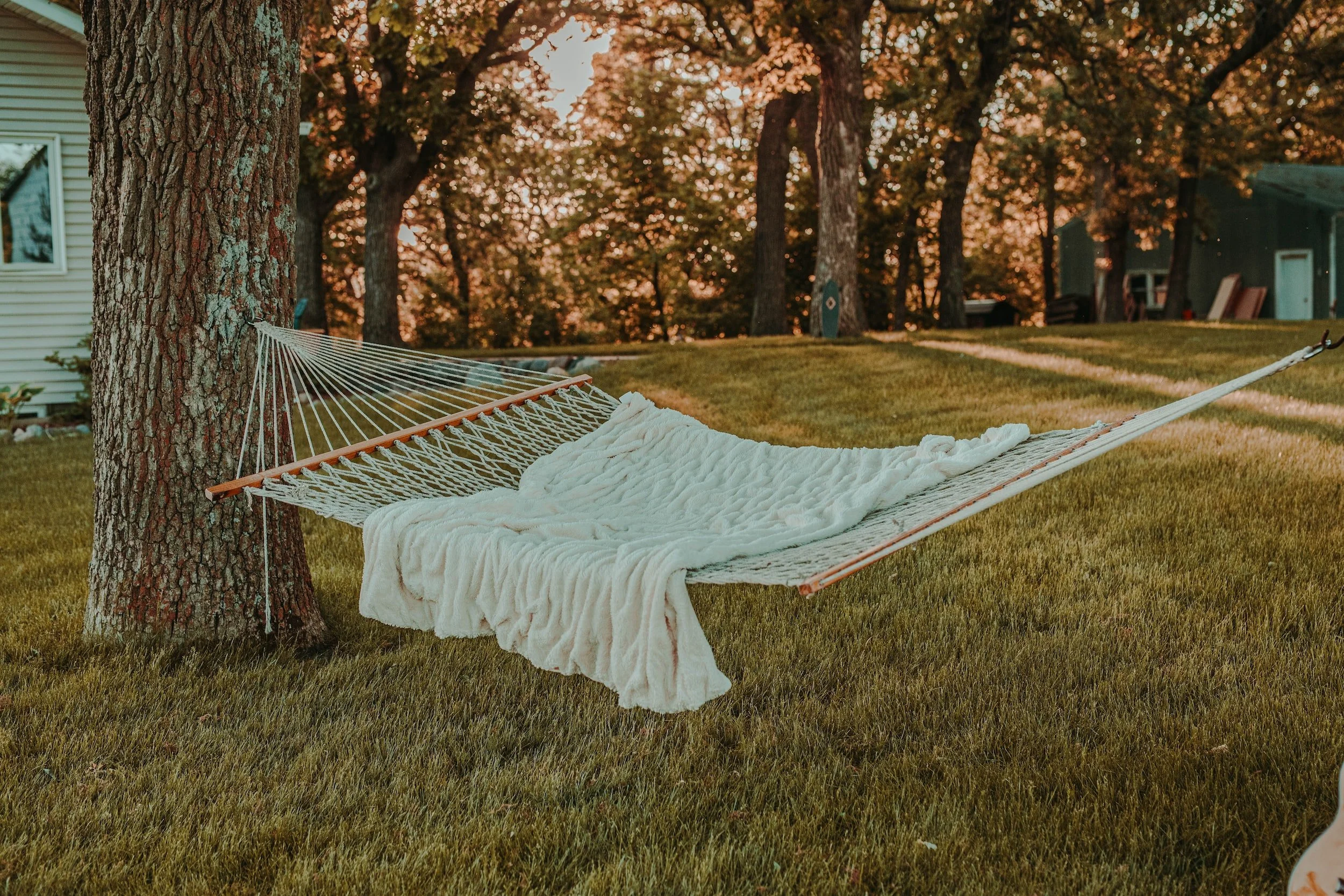Are you a rest role model?
There is an idea that has been clanging around in my brain recently. I believe, firmly, that rest is an integral part of our experience as humans. It is important so we can cultivate our sense of play, joy, and ease to balance out our sense of work, hustle, and productivity. In fact, I feel like that is so important that when I take on yoga therapy clients, rest and/or relaxation is in their treatment plans 99.9% of the time. I have made the joke that people come to me to have me tell them to rest.
Then just last weekend I was talking with a lovely group of women about rest. I asked a question that popped into my head that I didn’t even realize that I personally didn’t have an answer to. The question was: in your life, who was a rest role model?
As a result, for a lot of this week, I have been thinking about exactly this idea…who IS my rest role model. Who do I see as a person in my life who really models rest for other people? And honestly, I couldn’t name one person.
There are a couple of reasons for this, I think.
First, for many of us, rest is considered equivalent to weakness. We are supposed to rest when we are tired. But “tired” is a word that we have been taught doesn’t just mean ‘take a mental and physical break’, it means ‘I am so bone-weary I can’t move anymore, and my brain is like Jello’. Anything less than those states of being is located firmly in “I’ll rest when I’m dead” territory.
Often I hear people say to others, usually others who have challenges with their autoimmune system or other health and wellness concerns (that phrase covers a lot of territories including mental health challenges) to “rest when you need to”. But how can those people not feel less than when those of us who are relatively healthy and well don’t also actively pursue rest?
It is not weak to rest. Some of our best ideas come when we are looking out the window, taking an extra long shower, or doing some constructive resting (that is rest with a purpose, more on that next week).
Rest has been commodified in recent years, so it seems inaccessible to a lot of folks. So, we do use the phrase “self-care” at Sunlight, we even have a class called Self-Care Sundays with one of our teachers Allyson. But self-care has been told to us in recent years that it means buying stuff and going places. It means chocolates, pedicures, girls’ nights, bubble baths, and long weekends for some “me time”. I once had a person I look up to in the yoga sphere talk about how “critical” their weeklong retreats every year to their “self-care” are.
Well, guess what? I started a business 6 months before a global pandemic. I have two kids, a partner, a mortgage, and a business to run. I cannot afford their or anyone else’s “critical” thousands of dollars week-long retreat. Guess who else can’t? The poor. The disenfranchised. The folks who are struggling to get by. Single moms. Parents who both must work non-stop to maintain their family and life.
So what we have ended up doing is telling the people that already are challenged with wellness inequity (that’s a thing, a serious thing) that there is no shot at catching up because they can’t afford a silent retreat with all organic food misted with the sustainably harvested tears of joy from fairies. Of course, we don’t model rest. Rest is sold as a premium luxury, and a lot of us just can’t afford it.
So, I am challenging everyone to rethink rest.
What if instead of resting only when you are “weary” or “bone-tired”, you consider rest as important as work?
What if rest isn’t really a thing that happens as a last resort, but as part of our daily maintenance and routine?
What if “bone-weary” or “fuzzy brain” is to rest what being thirsty is to hydration? If you are thirsty you are too late. You should have been drinking water hours ago.
Can we now say that if you are flat out exhausted it is too late? Can we say you should have rested hours ago? You should have sat for 20 minutes or laid down for a quick nap or stared out the window with no agenda. You should have taken the time to rest. Could we agree that it is okay to rest because balance means rest and work are equal?
If our goal is an overall sense of meaning and purpose, and if our lives are going to move in that direction well-being is a crucial component…isn’t having a rest ethic as important as having a work ethic?
Maybe that goes against a lot of what you were taught.
Me too.
But I also know that rest is important for me, for all of us.
So, I am committed to becoming a rest role model.
Wanna join me?

